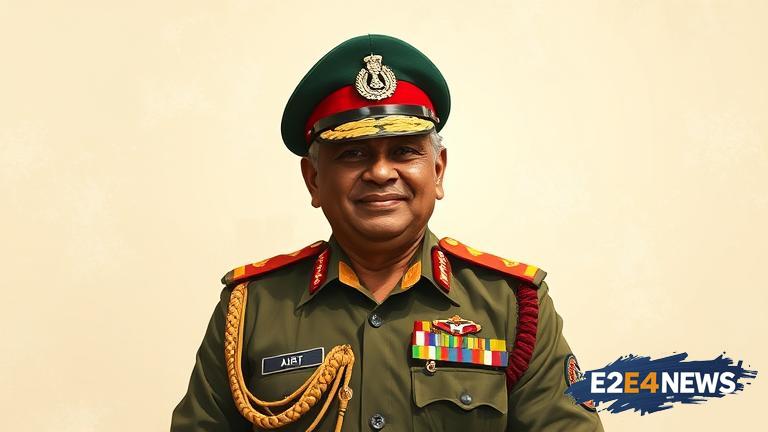In a recent address, Chief of Defence Staff General Anil Chauhan highlighted the significance of India becoming a self-reliant nation, emphasizing the need for the country to be ‘Sashastra, Suraksit, and Aatmanirbhar’. This vision, as outlined by General Chauhan, encompasses three key aspects: being well-equipped and armed (Sashastra), ensuring the safety and security of its citizens (Suraksit), and achieving self-sufficiency in various sectors (Aatmanirbhar). The concept of Aatmanirbhar Bharat, or a self-reliant India, has been a cornerstone of the government’s policies, aiming to reduce dependence on foreign imports and promote domestic manufacturing. General Chauhan’s remarks come at a time when India is focusing on modernizing its defence capabilities, with an emphasis on indigenous production and technological advancements. The country has made significant strides in developing its own defence equipment, including fighter jets, submarines, and missile systems. However, there is still a long way to go in achieving complete self-reliance, particularly in critical areas such as defence production and cybersecurity. General Chauhan’s statement underscores the importance of a multi-faceted approach to national security, encompassing not only military strength but also economic and social development. A strong and self-reliant India would be better equipped to address the challenges of the 21st century, including terrorism, cyber threats, and climate change. The government has launched several initiatives to promote self-reliance, including the ‘Make in India’ programme, which aims to encourage foreign investment and promote domestic manufacturing. Additionally, the ‘Digital India’ initiative seeks to leverage technology to drive economic growth and improve governance. General Chauhan’s vision for a Sashastra, Suraksit, and Aatmanirbhar India resonates with the government’s policies, emphasizing the need for a holistic approach to national development. The country’s defence forces have been at the forefront of promoting self-reliance, with the Indian Army, Navy, and Air Force all working towards developing their own indigenous capabilities. The defence sector has seen significant investments in recent years, with the government allocating substantial funds for modernization and upgradation of equipment. Furthermore, the ‘Start-Up India’ initiative has encouraged entrepreneurship and innovation in the defence sector, with several start-ups working on developing cutting-edge technologies. General Chauhan’s remarks also highlight the importance of international cooperation and diplomacy in achieving national security objectives. India has been actively engaging with other countries to promote peace and stability in the region, including through initiatives such as the Quadrilateral Security Dialogue (Quad). The country’s growing economic and military prowess has also led to increased engagement with other nations, including the United States, Russia, and France. As India continues on its path to self-reliance, it is likely to face several challenges, including the need to balance its relationships with other countries while maintaining its sovereignty and independence. Nevertheless, General Chauhan’s vision for a Sashastra, Suraksit, and Aatmanirbhar India provides a clear roadmap for the country’s future development, emphasizing the need for a strong and self-reliant nation that is capable of addressing the challenges of the 21st century. The government’s policies and initiatives, combined with the defence forces’ efforts to develop indigenous capabilities, are expected to play a crucial role in achieving this vision. In conclusion, General Chauhan’s remarks highlight the importance of a multi-faceted approach to national security, encompassing military strength, economic development, and social progress. As India continues to grow and develop, it is likely to emerge as a major player on the global stage, with its self-reliance and indigenous capabilities being key factors in its success.
